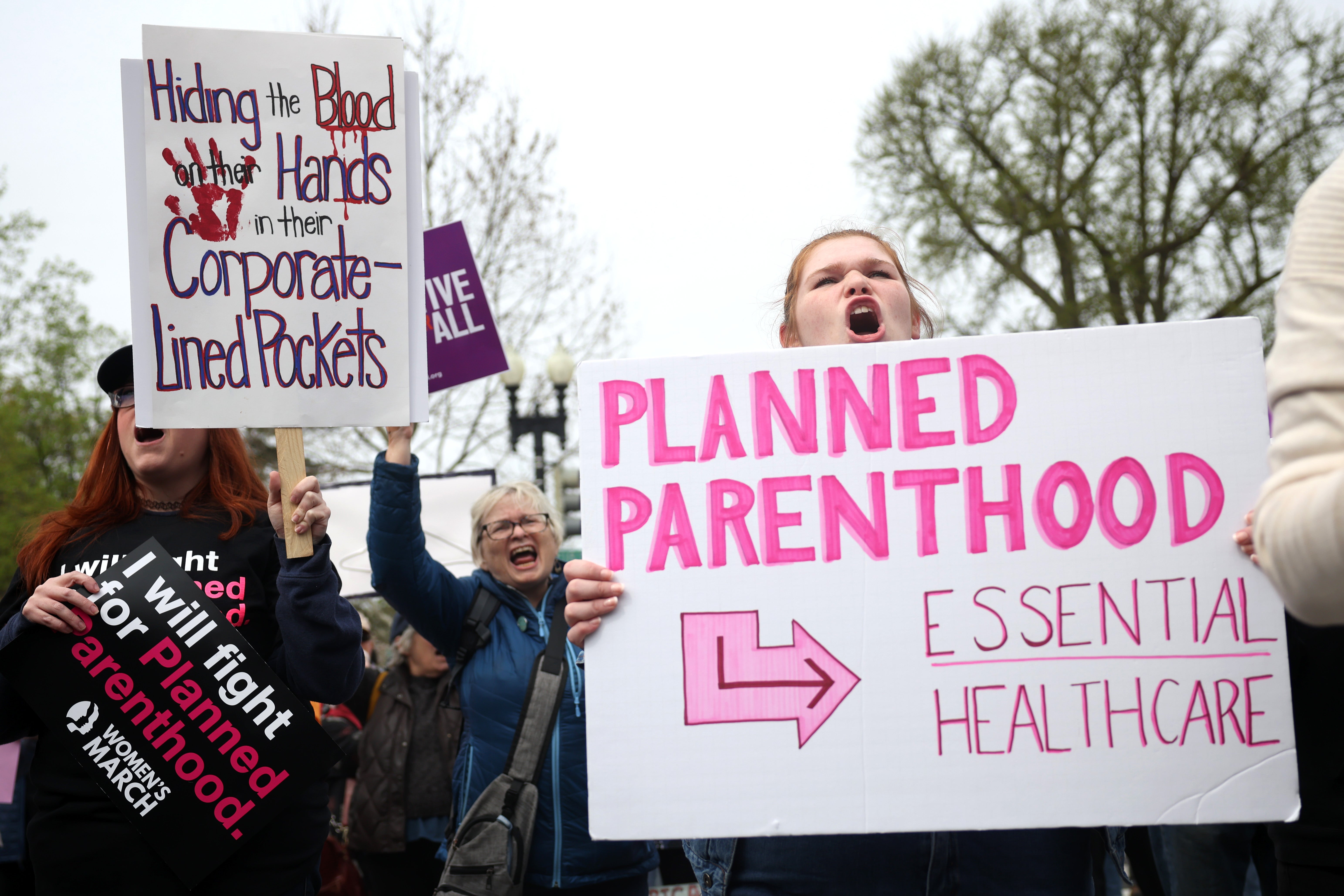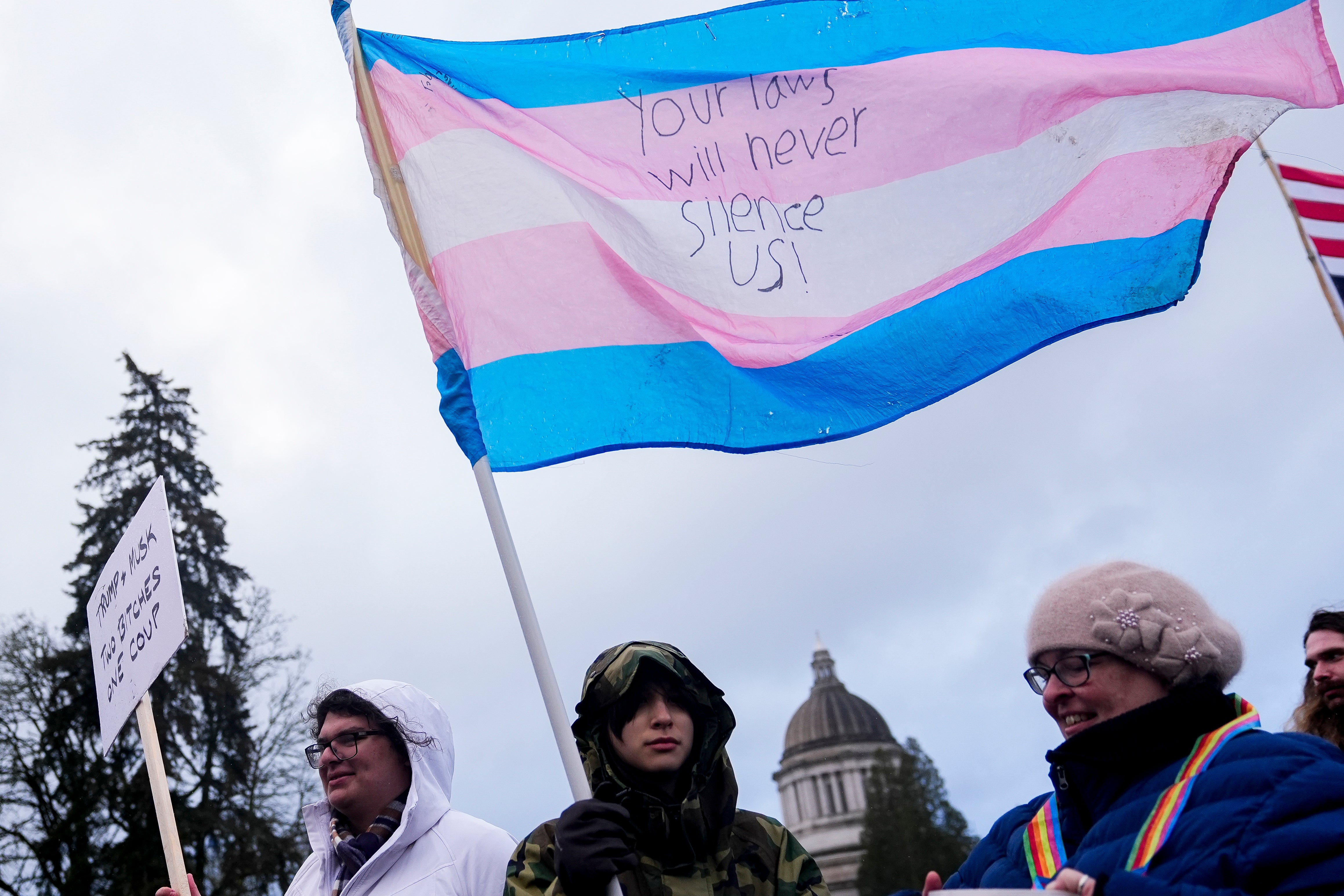A network of clinics across Maine that got swept up in President Donald Trump’s megabill’s defunding provision will not receive Medicaid funding to treat thousands of low-income patients as the lawsuit proceeds in court, a federal judge ruled on Monday
Maine Family Planning, a nonprofit that offers primary and reproductive health care in 18 clinics across the state, was unable to receive Medicaid funding because Trump’s bill, known as the “One big beautiful bill,” blocked money from flowing to abortion providers.
The nonprofit sued the Trump administration after the July 4 law, saying no Medicaid funding went toward abortion services – which only account for a fraction of their services.
But Maine’s district court Chief Judge Lance Walker, appointed by Trump in 2018, said on Monday that Congress can withhold federal funds from conduct “not enshrined as a constitutional right” and cited the Supreme Court’s decision in Dobbs v. Jackson Women’s Health Organization.
Walker added that allowing the Medicaid funding would also undermine the bill, which he said was created through a democratic process.
The decision arrived despite a separate federal court ruling that said all Planned Parenthood clinics must continue to be reimbursed for Medicaid funding as court proceedings play out.
Without Medicaid funding, Maine Family Planning is at risk of closure which could harm another crucial service in the state: gender-affirming care.
“Without Maine Family Planning, the infrastructure and the whole state network would crumble,” Evelyn Kieltyka, the senior vice president of Program Services at Maine Family Planning, told The Independent.
Last year, Maine Family Planning had nearly 16,000 visits, but the nonprofit performed just 760 abortions, meaning terminations made up less than five percent of care provided. That’s compared to more than 2,000 gender-affirming care visits last year.
Patients have said the network is a “lifeline” for individuals seeking gender-affirming care, Kieltyka said.
That’s partly because of the state’s composition. Because so much of the state is rural, patients often have to travel hours to seek medical care. For more than two-thirds of its patients — 70 percent — Maine Family Planning is the only health provider they will see in a given year.

Finding gender-affirming care is less readily available generally. Trump’s attacks on transgender Americans haven’t helped.
In January, after the president issued a string of executive orders attacking transgender Americans. Trump issued an executive order stating the United States only recognizes two sexes, introduced a ban on transgender service members in the U.S. military, and ordered that federal funds stop being used to support gender-affirming care for minors. Legal challenges over the bans are playing out.
That month, the nonprofit was flooded with calls from concerned patients about whether gender-affirming care was still offered and still legal, according to Kieltyka, who called the new measure “devastating.”
The nonprofit offers a variety of services — cancer screenings, STI testing, contraception, and abortion services. To add insult to injury, several hospitals in the state have been forced to shutter their labor and delivery units in recent years, taking OBGYNs with them.
“Communities across the state are just losing resources and they're losing people who hold knowledge in their communities,” Kris Pitts, executive director of MaineTransNet, told The Independent. “Every single time we take away any little piece of that puzzle, it's the community members who suffer.”
Roughly 40,000 Maine residents will be impacted by the Medicaid cuts and 7,500 of them are patients at Maine Family Planning, according to the nonprofit. Without access to Medicaid dollars, the nonprofit will be forced to stop seeing all patients, regardless of their insurance status, by the end of October.
But the issues span far beyond Maine’s border. Nationwide, the July 4 law could leave 10 million uninsured and threatens to shutter already-stressed rural hospitals across the county.
Across the country, roughly 185,000 transgender adults use Medicaid as their primary health insurance, according to a 2025 report by the Williams Institute, a think tank at UCLA School of Law.

Planned Parenthood was the intended target of the July 4 legislation, but the nonprofit “got caught in its net,” the lawsuit says. The law barred Medicaid funding for nonprofits that "primarily engage” in family planning services and reproductive health, provide abortions, and received more than $800,000 in Medicaid reimbursements in 2023.
Planned Parenthood not only serves as the largest abortion provider in the country, but also the second largest provider of hormone therapy. If it’s defunded, nearly 200 Planned Parenthood centers across 24 states face risk of closure, the organization has said.
It’s not surprising that the law targeting abortion care is also targeting gender-affirming care, Pitts said: “They're not separate issues. It's all one issue. It's all one attack, it's all one movement.”
The reality of the new law is especially devastating because the July 4 law specifically excluded language from the bill the House passed that would have prohibited federal dollars, including from Medicaid, from being used for gender-affirming care. That provision was eliminated in the Senate version.
“These organizations provide critical care to members,” Pitts said. “Mainers deserve health care that meets their needs, and any interference with that is a tragedy.”
Trump executive order gives politicians control over all federal grants, alarming researchers
Trump rebukes crowd for not applauding ban on transgender women from female sports
Judge blocks Trump administration's efforts to defund Planned Parenthood
Trump plans to sue California over redistricting - but Texas is apparently OK
Doomsday scenarios of Texas and California going nuclear over redistricting
Trump wants to reconnect with North Korean dictator Kim Jong Un







